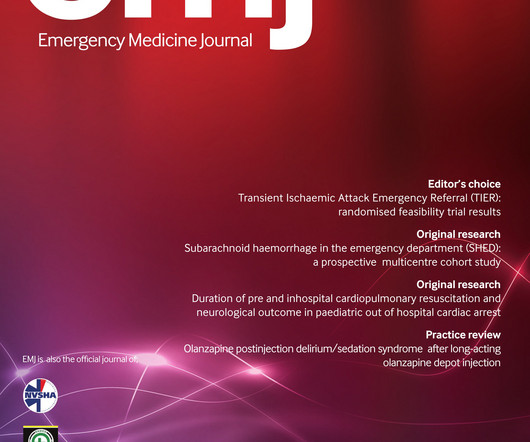SGEM#445: Why Can’t We Be Friends – Conflict in Emergency Medicine
The Skeptics' Guide to EM
JULY 6, 2024
Such conflicts hinder cohesive teamwork and decision-making, potentially compromising patient safety. Conflicts in the ED often stem from clinical decision-making and actions, leading to potential adverse patient events and exacerbating access block issues. These conflicts can ultimately lead to moral injury [1,2,3].
















Let's personalize your content